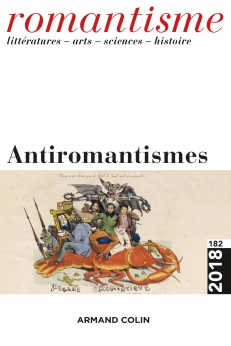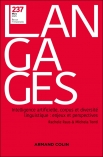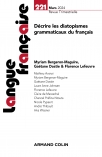
ROMANTISME N° 182 (4/2018)
Pour acheter ce numéro, contactez-nous
Recevez les numéros de l'année en cours et accédez à l'intégralité des articles en ligne.
Dans les mouvances doctrinales de droite, tout un courant critique a fait de l’association entre romantisme et maladie son fer de lance et sa propriété. Pourtant, la pathologisation du romantisme a existé dans une tout autre sphère, ainsi que le montre un élargissement du regard au-delà du seul cas français. En effet, si l’on se déplace à l’échelle européenne, la métaphore associant romantisme et maladie connaît également des actualisations dans une pensée plus ouvertement révolutionnaire, qui reprend à son compte la critique par Hegel du courant romantique allemand, accusé d’entraver la marche de l’Histoire vers le progrès. C’est sur cette généalogie post-hégélienne qui a irrigué un certain nombre de courants littéraires et critiques à gauche que nous proposons de nous pencher, afin de souligner la prégnance d’une métaphore qui, trouve aussi naturellement à s’inscrire dans des courants réalistes et matérialistes revendiquant une force d’action qu’un certain romantisme anémié et évanescent semble éroder dangereusement.
An entire critical movement, among those doctrinally on the right, associates romanticism and illness, and has in fact made it its badge of honour and its preserve. Nonetheless the pathologizing of romanticism has existed in a totally different area, as opening out the enquiry beyond France shows. At the scale of Europe, the metaphor linking romanticism and illness has been activated in currents of thought more openly revolutionary, following up on Hegel’s critique of German romanticism, seen as disrupting the march of History towards progress. This paper focuses on this Hegelian genealogy and its influence on a number of literary and critical movements on the left, in order to highlight the hold of a metaphor that also seems naturally pertinent to the realistic and materialistic movements vindicating the strength to act that a certain type of anaemic and evanescent romanticism seems to dangerously erode.

